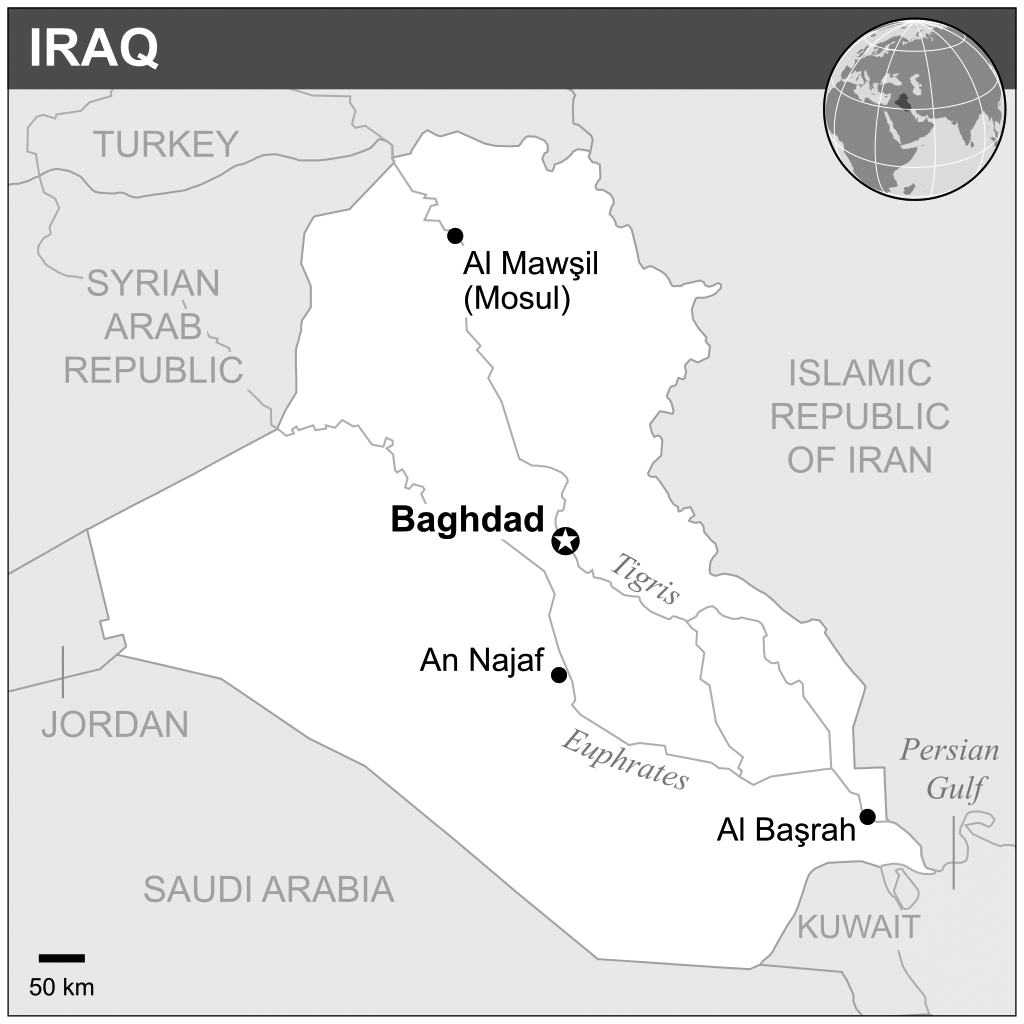Right back where we were; Why leaving Iraq was a mistake
November 16, 2016
With the recent to-do over the presidential elections, and in the fearful weeks leading up to the ultimate climax of voters everywhere casting their ballots for many positions throughout the nation, a headline flashed across many news stations throughout the country.
Or at least, I hope it did. What is happening right now in the Middle East will determine whether or not ISIS can be defeated; yet Americans presently seem more concerned that the wrong candidate won than the fact that the Iraqi government is currently fighting the greatest threat to Near Eastern stability since the beginning of the Cold War.
I am talking, of course, about the ongoing offensive to retake the city of Mosul. Mosul, a city of great historical, religious, and intellectual importance, lies in the extreme North of Iraq, right on the border between where Iraq and Kurdistan meet (the latter being an unrecognized state which operates semi-autonomously within Iraq.)
This same city was a base of the 101st Airborne during American Occupation, and remained in the hands of the Iraqi government until 2014. Today, thousands of Kurds and Iraqis launch a pitched siege against well-equipped and well-prepared ISIS fighters to retake a city that was, as of a few years ago, within the control of a recognized government. Now, we have lost territory to the hands of terrorism, and we have nobody to blame for this but ourselves.

A map of Iraq. Mosul is in the North.
Whether or not we want to accept it, the American withdrawal from Iraq in 2011 was hasty, poorly-planned, inhumane, and for lack of a better word, foolish. The government of Iraq was not prepared to address the significant security threats which were developing in the region at the time of US withdrawal. Furthermore, the United States left large amounts of infrastructure and humanitarian work incomplete, hoping that nobody would notice.
Well, they were right- until now. Right now, ISIS can’t be ignored. Not only has Iraq had years of sectarian violence, but now comes the very real threat of an entire country falling under the control of religious extremists. Religious extremists, it should be noted, who persecute members of their own religion, who practice thorough hypocrisy, and are not true Muslims.
Now, I get it, in part – we, as a nation, should look after our own. We should fix our crumbling infrastructure and put Americans to work. However, it is completely unjust to invade, destabilize, and destroy the government of another nation, and then walk away with the job half-finished because we didn’t feel like completing it anymore. And I’m not in favor of Americans dying overseas either- but ultimately, a policy decision was made which determined that American involvement was going to be involved in removing Saddam Hussein, and so we had an obligation to stay until a real government was put in place- an obligation we did not fulfill. The government of Iraq today is corrupt, ineffective, and plagued with infighting by its own members which allow issues like ISIS to grow completely out of control.
America now has to decide, as a nation, what we’re going to do. Are we going to pretend that a strategically insignificant air campaign is enough? Are we going to continue to turn away from the problem we created, and say “we can’t let it happen again?”
Or, are we going to commit to making the world a peaceful place? Are we going to fulfill the commitments of our military, which claim to be a “Global Force for Good?” Or, instead, should we continue to allow our defensive posture grow stagnant, as our fields of military and tactical innovation, where we once excelled, fall dormant and lapse behind those of our rival nations?
America has a tough choice to make. However, the solution is there. We need to right the wrongs we have made; we have, right now, an opportunity to stabilize the Middle East, but it must be done with competent leadership and military force. Soldiers need to be on the ground in the Middle East, but we as a nation need to commit to full support of both our men and women on the front lines and to the men and women of the Peshmerga, and to the men and women of every unified armed force which is fighting to roll back ISIS.
We need to send the message that campaigns of terror are unacceptable. We need to send the message that we are not afraid. We can, and will, defeat those who seek to terrorize us into submission.


